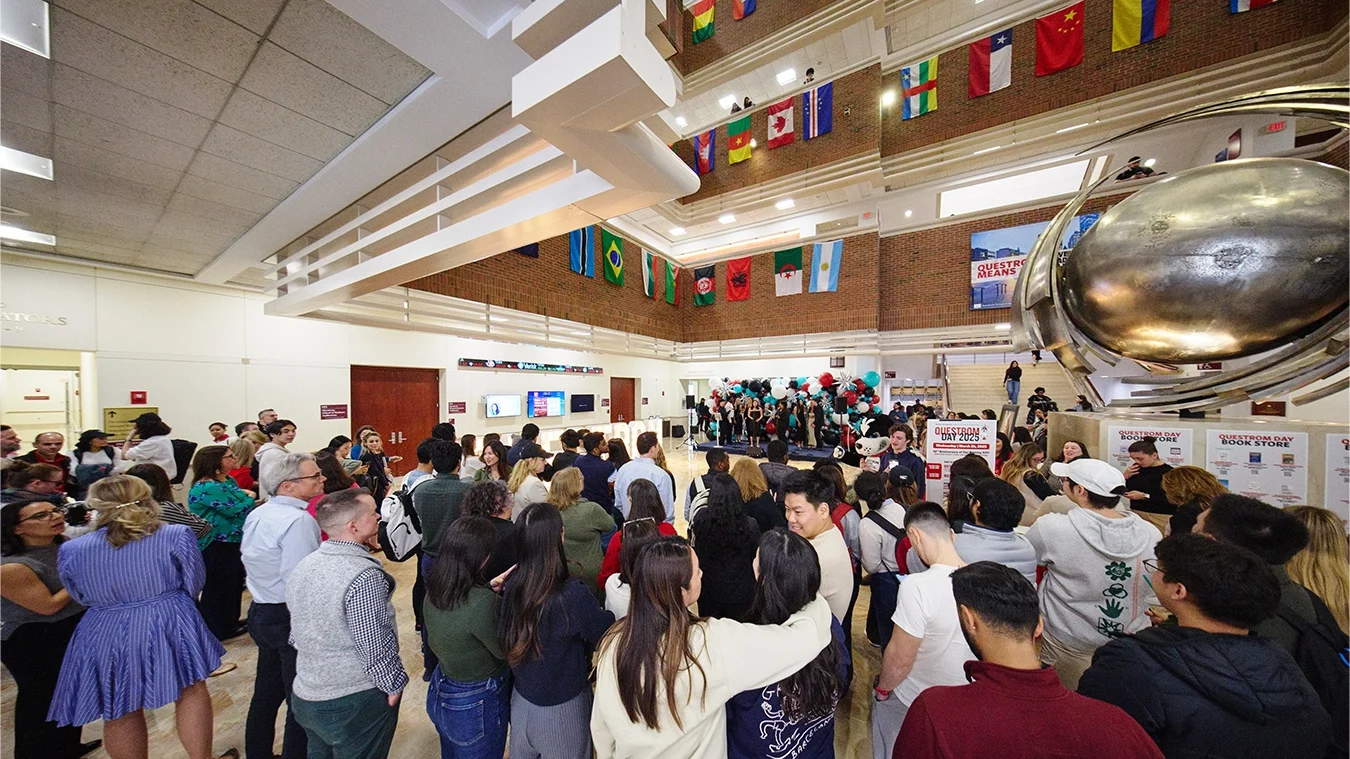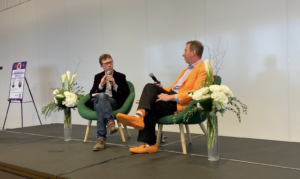The Power Of Alumni Networks In Today’s Changing Economic Landscape
April 19, 2025

In an increasingly complex job market characterized by rapid technological change, shifting workplace norms, and economic uncertainty, professional networks are essential for career growth and stability. Alumni networks, in particular, represent some of the most valuable relationship assets we as professionals can access—offering a blend of shared experiences, industry insights, and genuine guidance that can transform one’s career trajectory.
Navigating Today’s Economic Realities
The current economic landscape presents both challenges and opportunities for professionals. Lightcast data shows significant turbulence across industries, with companies reporting layoffs due to cost-cutting and recession fears, as well as talent shortages and skills mismatch in specialized areas. Frequent job transitions are also commonplace. The Bureau of Labor Statistics reports that millennials held approximately nine jobs between the ages of 18-36, underscoring the importance of adaptability and access to networks throughout one’s career journey.
“Networking has always been an essential career development skill,” said Monica Parker-James, Associate Dean of Career and Alumni Engagement at the Boston University Questrom School of Business. “In an uncertain job market, it is especially important to form relationships with other professionals who understand your strengths and can help you to make connections.”
Research supports the important role that networking plays. Studies consistently demonstrate that 70-80% of all available jobs are filled through employee referrals, social media recruiting, and hiring managers’ personal networks—not through traditional job boards or applications.
The Strategic Advantage Of Alumni Connections
Alumni networks boost careers in several important ways. First, shared educational experiences create an instant bond and trust. Those with a shared alma mater often form an immediate connection, and alumni provide trusted insights about industry trends, job opportunities, and workplace challenges—acting like a personal “Glassdoor” for reliable information.
Second, alumni are spread across different locations, career levels, and industries, giving access to diverse perspectives and a range of opportunities that may not be visible through traditional job postings. Susan Stelter, Chief People Officer at West Monroe, a digital consulting firm, points out that alumni make excellent career advisors because they bring fresh perspectives from their varied experiences.
Andy Shaindlin, Vice President for Alumni Engagement at Huron, highlights in his recent article that “Alumni represent a powerful but under-leveraged resource. They are the largest and only permanent constituency each university has, far outnumbering faculty, staff, or current students.”
Boston University’s Questrom School of Business fosters a robust alumni community through diverse engagement opportunities—from alumni fireside chats and monthly networking events to regional initiatives. Specialized councils and alumni-sponsored experiential projects enhance these connections, while the BU Connects platform and alumni LinkedIn groups facilitate career conversations. This approach cultivates organic relationships between students and alumni professionals, creating valuable knowledge-sharing opportunities that benefit everyone involved.
“Our alumni advocate for Questrom talent because they know our students are prepared and will add value,” said Parker-James. “With AI and easy apply mechanisms, recruiters and hiring managers rely on personal recommendations to pare down the volume of applications.”
Questrom has invested in cultivating alumni connections based on shared values. Recent efforts have harnessed the energy and enthusiasm for Questrom, bolstering the alumni-to-alumni network and facilitating career support for current students by creating a well-integrated alumni community that advances individual careers while collectively promoting the value of business education.
As Questrom alum Trish Harris (Questrom MBA ’20) emphasizes, “The connections and relationships with my fellow peers and faculty in the Health Sector Management Program have been invaluable both in landing my first role outside of Questrom and having a deep network in the Boston healthcare industry to learn from.”
The power of alumni networks extends far beyond simply finding the next job opportunity. These connections offer professional development, emotional support during career transitions, industry insights, and the chance to give back by supporting newer graduates—creating a virtuous cycle of growth and opportunity within the community.
The Science Behind Networking Success
Research supports the unique value of alumni connections. In a landmark study, now 50 years old, Stanford sociologist Mark Granovetter highlighted the distinction between strong relational ties (close friends and colleagues) and weak relational ties (acquaintances and distant connections). While intuition might suggest that close connections provide the most career benefit, the research revealed that weak ties—exactly the kind typically found in alumni networks—often deliver the greatest value in terms of new opportunities and perspectives.
This occurs because close connections typically share similar knowledge and networks, while distant diverse connections enrich our social portfolio by exposing us to entirely new information ecosystems. Alumni connections strike a perfect balance—offering enough familiarity to establish trust while providing access to diverse opportunities beyond our immediate circles.
The Digital Evolution Of Alumni Engagement
Digital platforms have revolutionized how alumni networks function, extending the impact of occasional in-person gatherings into continuous engagement opportunities. Questrom’s alumni pages on LinkedIn and other platforms serve as a robust and active online community, connecting over 10,000 alumni worldwide and enabling relationships to grow and thrive irrespective of geography. These virtual gathering spaces create opportunities for alumni to forge new relationships, strengthen existing ones, and support fellow graduates throughout their careers.
Digital tools provide a much wider circle of “weak ties”—people we wouldn’t normally meet. While these online connections are valuable, the power of face-to-face interaction shouldn’t be underestimated. When possible, moving relationships that start online into the real world, and vice versa, can deepen these connections.
Srinivas Rayavarapu (Questrom MBA ’24) highlights that digital platforms provided alumni connections that were crucial to his career journey as an international student and served as an important supplement and enabler of in-person activities. “During my time at Questrom, the networking skills I developed through university events and the mock interview preparation from the career support team have been absolutely fundamental to my professional growth.”
Rayavarapu recommends that students “focus on the quality of networking and not the quantity” and adds that recent graduates should approach networking by “creating meaningful connections by showing genuine interest in others’ work, asking thoughtful questions, and offering value where possible. The key is to approach networking as a long-term relationship-building process rather than a transactional activity.”
Building Meaningful Alumni Relationships
Experienced professionals understand the importance of giving before asking. Sharing useful industry insights, connecting people who might benefit from knowing each other, and offering something of value before requesting help creates goodwill and strengthens relationships.
Growing one’s alumni networks requires strategic engagement. Being visible in your field matters. This means giving talks, joining professional groups, and sharing perspectives through articles or blogs. Effective networkers set specific goals and dedicate regular time each week to maintaining and building relationships. It’s not just about collecting contacts—it’s about intentional connection.
The power of alumni networks extends far beyond simply finding the next job opportunity. These connections offer professional development, emotional support during career transitions, industry insights, and the chance to give back by supporting newer graduates—creating a virtuous cycle of growth and opportunity within the community.
As Questrom alum Harris points out, “Your professional network is one of your best assets, but you have to invest time and energy to make it grow.”


